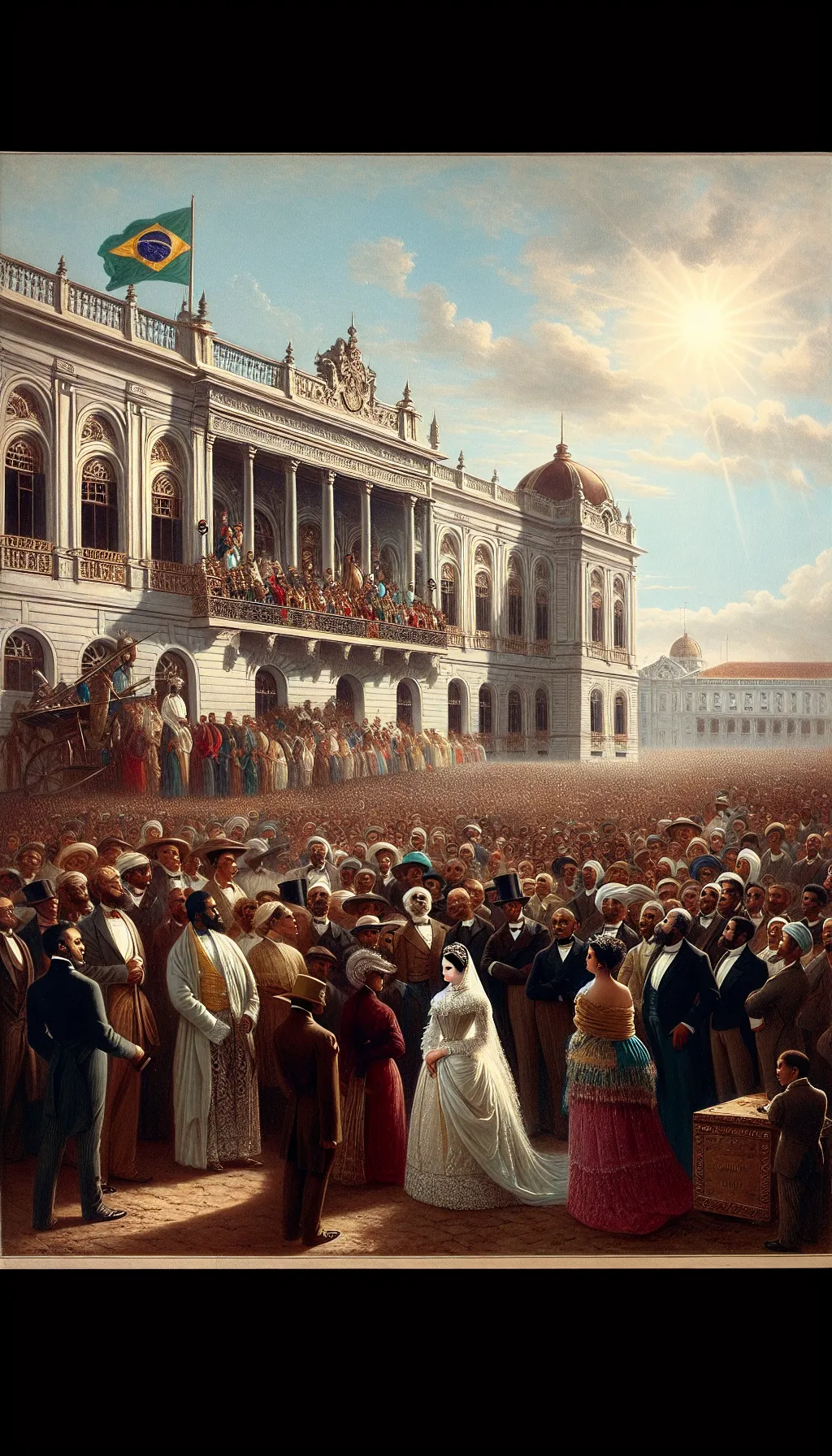Brazil – The Day Chains Were Broken – May 13, 1888: A Complex Victory
TLDR;
- Event: On May 13, 1888, Princess Isabel of Brazil signed the Lei Áurea, abolishing slavery in the country, freeing 700,000 to 800,000 enslaved people.
- Background: The abolition was the result of years of abolitionist activism, economic changes, and slave resistance, with Brazil being the last independent nation in the Americas to end slavery.
- Immediate Impact: The law led to widespread celebration but did not provide reparations or support for freed slaves, leaving many in vulnerable conditions.
- Legacy: While marking a significant step towards freedom, the abolition highlighted the ongoing struggles for equality and justice in post-slavery Brazil.
–
Story
The air was thick with anticipation in Rio de Janeiro on May 13, 1888. Crowds gathered outside the Imperial Palace, their eyes fixed on the balcony where Princess Isabel, the daughter of Emperor Dom Pedro II, was about to make history. With a stroke of her pen, she would sign the Lei Áurea, the Golden Law, and bring an end to centuries of slavery in Brazil. Yet, this moment was not solely the result of her moral leadership but a culmination of broader political and economic pressures, including the weakening monarchy’s strategic move to maintain support.

For years, the abolitionist movement had gained momentum, fueled by the tireless efforts of activists, economic shifts favoring wage labor, and relentless slave resistance through mass escapes and rebellions. Brazil, the last independent nation in the Americas to abolish slavery, had taken gradual steps toward this moment, such as the Lei do Ventre Livre in 1871 and the Lei dos Sexagenários in 1885, under mounting pressure.
As Princess Isabel stepped forward, the weight of the moment was palpable. The signing of the Lei Áurea was not just a legal act; it was a profound statement of human dignity and freedom. The law was simple, consisting of just two articles: the first declared the abolition of slavery, and the second stated that all contrary provisions were revoked.
The impact was immediate and profound. Over 700,000 to 800,000 enslaved people were freed, and the streets erupted in celebration. Yet, the end of slavery was just the beginning of a new struggle for equality and justice. The law provided no reparations or support for freed slaves, leaving them vulnerable to exploitation, poverty, and systemic racism. Many were forced into precarious labor conditions that eerily resembled slavery.
The signing of the Lei Áurea was a turning point, a beacon of hope that illuminated the path toward a more just and equitable society. It was a day when the chains of oppression were broken, and the spirit of freedom soared, yet the journey toward true equality remained fraught with challenges.
–
| Would a different approach to abolition have changed the course of Brazilian society? |